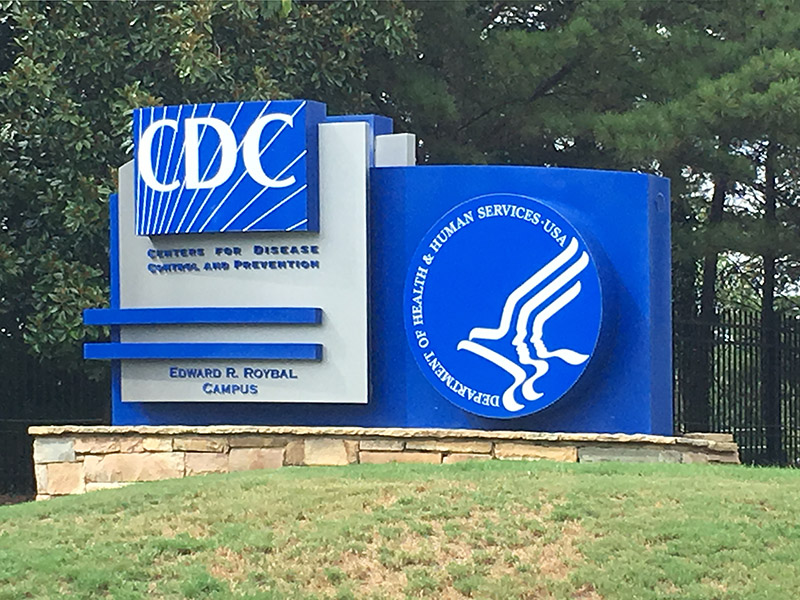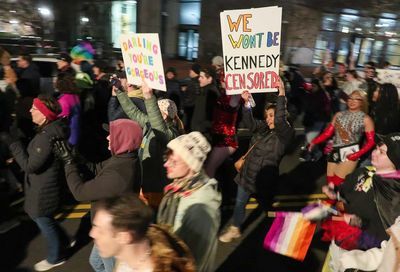Gay travel company slams ‘homophobic’ gay cruise story in New York Times
Vacaya CEO Randle Roper says article should have focused on the precautions cruise lines are taking to curb the spread of COVID.

The CEO of a gay-oriented travel company has accused The New York Times of “homophobia” for an article on the risk of passengers on cruise lines contracting COVID-19.
While the Times article focuses primarily on Atlantis Events, an LGBTQ tour operator, and the company’s 30th Anniversary cruise, which embarked with 4,700 passengers on an eight-day journey around the Caribbean on Sunday, Randle Roper, the CEO of LGBTQ travel company Vacaya, and a former executive producer for Atlantis Events, criticized the paper’s coverage.
Even though Vacaya wasn’t mentioned by name in the article, its Jan. 10-17 Caribbean cruise on Celebrity Millennium was referenced. According to Roper, the Times article failed to take into account the protocols that various cruise lines are following and the safety precautions that have been put in place to curb the spread of COVID-19 among passengers.
“The venerated Times, whose article quoted several people not even traveling on either cruise, did not live up to the journalistic integrity we expect and was an affront to Atlantis Events, LGBT+ travel companies in general and the gay community,” Roper told Seatrade Cruise News.
“This certainly wasn’t news ‘fit to print,'” he added, referring to the Times’ iconic slogan.
“As we begin to come out of the pandemic, it’s OK to ask questions about how, why, and when we’ll return to normal, but the Times completely missed the story here,” Roper said. “Their decision to focus on errant quotes taken from various social media pages to sensationalize the story was both a misfire and — let’s hope unintentionally — homophobic. The focus should have been on the positive steps being taken by travel companies to adapt to live in a new world of testing, screening and exposure reduction through contact tracing, upgraded onboard medical facilities and staff, and improved guest stateroom ventilation.”
Roper cited a December 2021 statement from Cruise Lines International Association criticizing the Centers for Disease Control and Prevention’s decision to raise the travel level for cruises to Level 4, indicating a very high incidence of COVID-19, to criticize the premise that cruise ships might be vectors for disease. According to that statement: “Cases identified on cruise ships consistently make up a very slim minority of the total population onboard — far fewer than on land — and the majority of those cases are asymptomatic or mild in nature, posing little to no burden on medical resources onboard or onshore.”
For example, Roper claims, all passengers aboard Vacaya’s Celebrity Millennium cruise were vaccinated, most had received a booster shot, and all were tested shortly before boarding, with those testing positive not embarking on the journey. Indoor masking policies remained in place throughout the cruise. In total, the ship sailed with 1,568 passengers. Throughout the course of the week, only 27 passengers tested positive for COVID and were places in isolation, while 72 “close contacts” were tested, placed in quarantine for 24 hours and re-tested before being released from quarantine and allowed to resume normal activities.
“All in all, the pre-cruise, onboard and post-cruise protocols have worked exactly as designed,” Roper said. “And because of our adherence to those protocols, Vacaya and our strong LGBT+ community members have successfully taken those first bold steps back to normalcy.
“Humanity’s return to normal won’t be easy and there will undoubtedly be pitfalls along the way, but someone has to make the first moves,” Roper continued. “As the LGBT+ community has done since the dawn of time, we will lead the way back to some semblance of normalcy. Yes, we might do that covered in sequins and glitter, but we will boldly take the steps others are afraid to make. Remember, this isn’t our community’s first pandemic and most of us understand how to adapt to protocols.”
In the Times article, several of those interviewed defended the idea of getting back to “normal” and resuming pre-pandemic socialization rituals.
“It’s time to start living our lives again and vaccines and tests allow us to do that. This isn’t COVID 2020,” one cruise-goer from Germany told the newspaper.
Another passenger even broached the idea that calls to cancel the cruise were overblown and exacerbated by anti-gay stigma, based partly on negative and untrue stereotypes of gay cruises as “drug-fueled sex parties with no limits” that might serve as vectors for disease.
“I don’t think I’m bulletproof, but I’m doubled vaxxed and boosted and I’m careful,” he said.
But other passengers told the newspaper they were highly concerned that the precautions taken by Atlantis Events were insufficient. Due to the company’s strict cancellation policy, some people were forced to recoup some of the money they spent by trying to sell off their tickets.
“I’m getting a lot of pressure from my friends to go and believe me, I really want to go and get it on, but it just seems crazy to me to risk getting sick and being trapped on a boat,” one of the ticket-sellers said. “Some nights I lose sleep and get the sweats just thinking about being in a cold room all alone with COVID.”
Support Metro Weekly’s Journalism
These are challenging times for news organizations. And yet it’s crucial we stay active and provide vital resources and information to both our local readers and the world. So won’t you please take a moment and consider supporting Metro Weekly with a membership? For as little as $5 a month, you can help ensure Metro Weekly magazine and MetroWeekly.com remain free, viable resources as we provide the best, most diverse, culturally-resonant LGBTQ coverage in both the D.C. region and around the world. Memberships come with exclusive perks and discounts, your own personal digital delivery of each week’s magazine (and an archive), access to our Member's Lounge when it launches this fall, and exclusive members-only items like Metro Weekly Membership Mugs and Tote Bags! Check out all our membership levels here and please join us today!
























You must be logged in to post a comment.